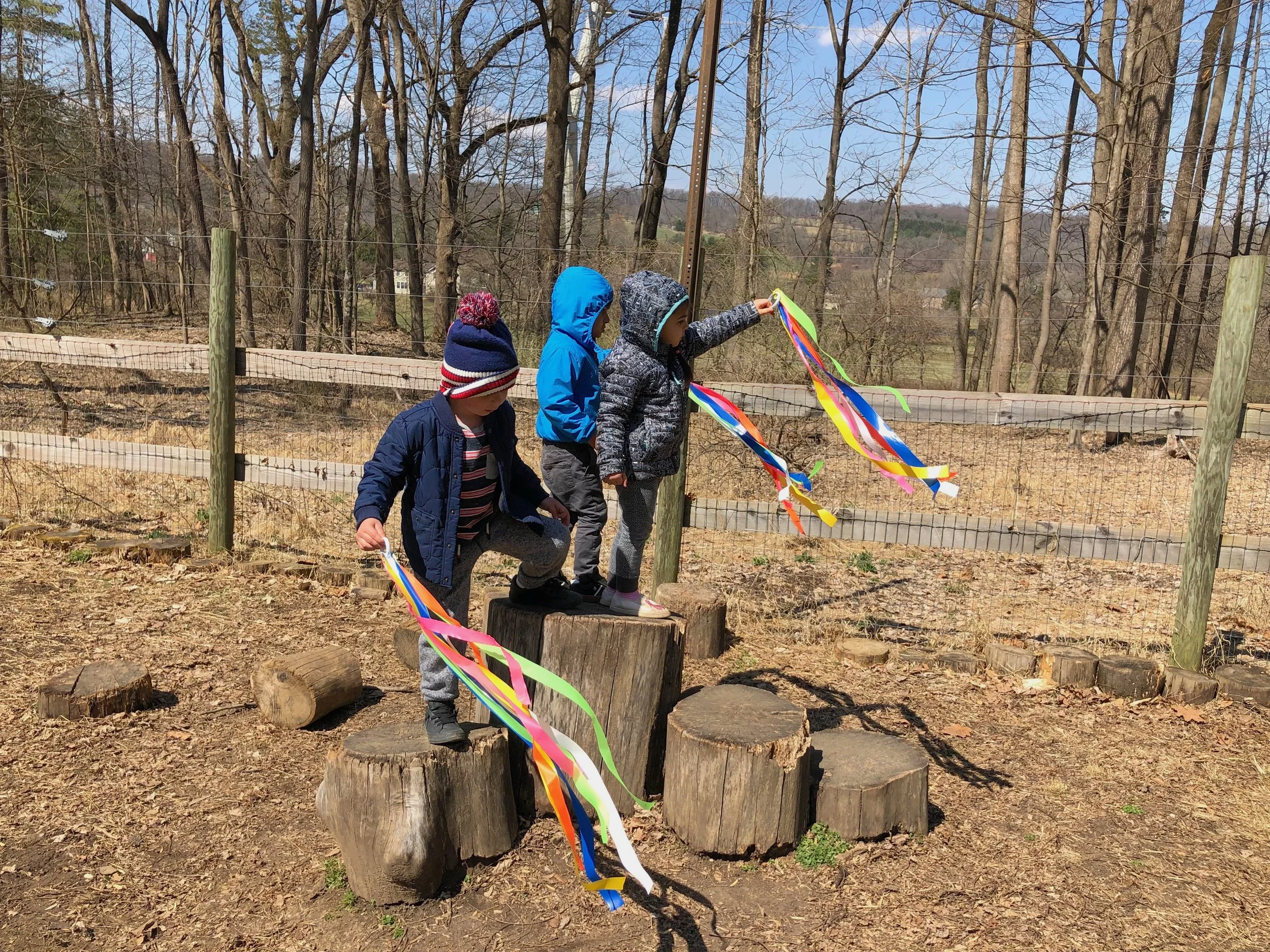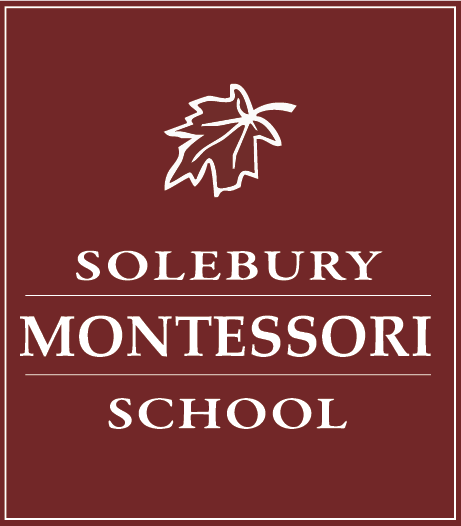
About Us
Solebury Montessori School is a primary children’s house located on 6610 School Lane, in the heart of Solebury Township. We are a multi-age one room school offering a progressive Montessori education for children ages three through six, preschool through kindergarten.
Who was Dr. Maria Montessori?
Dr. Maria Montessori was a visionary whose remarkable achievements expanded opportunities for women in science and education. As the first female physician in Italy, she fearlessly challenged entrenched norms, breaking new ground for those who would follow in her footsteps. Her accomplishments radiated hope signaling a new era in which women could aspire to roles of influence in both medical and academic spheres.
In 1907, Dr. Montessori established the first Casa dei Bambini, or Children's House, in Rome-a milestone that marked the dawn of her influential educational method. Instead of imposing rigid instruction, she shaped an environment where children could discover their own potential through autonomous exploration and meaningful engagement with their surroundings. Her classroom stood as a beacon of respect for young learners, honoring their individuality and unique rhythm.
Montessori's vision extended far beyond academic reform. She championed the idea that education should deepen understanding and reconciliation among people, laying foundations for a more peaceful world. Her dedication to these ideals brought her international recognition, including three nominations for the Nobel Peace Prize for her educational and humanitarian efforts. The impact of her groundbreaking work continues to resonate, as her legacy lives on inspiring educators and advocates across continents.
The Montessori Philosophy
The Montessori approach centers on nurturing each child's natural curiosity and potential through self-directed, hands-on learning experiences. In a carefully prepared environment, children are encouraged to choose activities that interest them, fostering independence, intrinsic motivation, and a lifelong love of learning.
Montessori educators act as guides, observing and supporting each child's individual progress rather than directing every step. Mixed-age classrooms promote collaboration and mentorship, while specialized materials allow children to explore concepts deeply and at their own pace. Respect for the child, freedom within limits, and a holistic focus on intellectual, social, emotional, and physical development are fundamental principles that distinguish the Montessori method from traditional education.
"Children learn as they play. Most importantly, in play, children learn how to learn."
- Dr. Maria Montessori
Social and Emotional Development
Social and emotional learning is woven into every aspect of a Montessori school. Children are encouraged to work both independently and collaboratively, which in turn promotes self-awareness, empathy, and strong communication skills. The classroom environment is arranged to support emotional growth, offering a calm, orderly space where children feel safe to express themselves and build relationships. Mixed-age classrooms provide opportunities for younger students to learn from older peers, while older children develop leadership and compassion by mentoring others. Through daily interactions, conflict resolution, and lessons in grace and courtesy, Montessori students learn to manage their emotions, resolve disagreements peacefully, and contribute positively to their community. This comprehensive approach ensures that children develop academically, but also as confident, emotionally intelligent, and socially responsible individuals.
Absorbent Mind
Dr. Montessori introduced the concept of the “absorbent mind” to describe the extraordinary capacity of young children to effortlessly acquire knowledge from their surroundings. According to Montessori, children from birth to about age six experience a significant developmental stage during which their minds instinctively and unconsciously absorb language, movement, cultural values, and fundamental concepts simply through active engagement with their environment. She believed that this innate ability enables children to build the foundations of their intellect, character, and social understanding when encouraged within a thoughtfully prepared setting. The idea of the absorbent mind highlights the critical importance of early childhood education which is central to Montessori's educational philosophy.
Sensitive Periods
In Montessori education, sensitive periods are special windows of time in a child's early development when they are especially eager and able to learn particular skills or concepts with ease. During these phases, children show intense interest and focus on activities related to areas such as language, movement, order, sensory exploration, small objects, and social interactions. For example, a child might be captivated by arranging materials, learning new words, or exploring tiny details. Teachers carefully observe these sensitive moments and offer the appropriate resources and experiences at just the right time, helping children lay strong foundations for future growth.
Prepared Environment
The Montessori prepared environment is a thoughtfully arranged classroom designed to support children's independence, curiosity, and natural love of learning. Everything in the space from child-sized furniture and accessible shelves to carefully chosen materials--is intentionally selected to meet the developmental needs of each child. The classroom is organized, calm, and beautiful, with a clear sense of order that helps children know what to expect and where to find things. Children have the freedom to move around, choose their own activities, and work at their own pace, whether individually or in small groups. Real-life objects and hands-on materials encourage meaningful exploration and self-correction, while the teacher acts as a guide, observing and supporting each child's journey. This unique environment fosters independence, confidence, and a lifelong enthusiasm for learning.
-
Full Day 8:30 a.m. to 3:00 p.m.
-
The academic school year is a 10 month term from September through June, and consists of a fall and spring semester.
All students attend 5 days per week.
-
Solebury Montessori School is licensed by the State of Pennsylvania Office of Child Development and Early Learning. In addition, we are a Full Member School of the American Montessori Society. All teachers are Montessori certified by the American Montessori Society, the largest Montessori organization in the world.
-
In 1992, Edwina and Fred Van Duyne started The Apple Tree Montessori with a small group of young children who loved to learn. Before long, the school began to outgrow the warm, cozy space and the Van Duynes began their search for a new location to meet the needs of the growing community and their families. Several years later, that dream became a reality. In the summer of 2013, The Apple Tree Montessori moved to its new location on 6610 School Lane in Solebury, Pennsylvania. In order to reflect and celebrate the new location on 10 bucolic acres, the school was renamed, and is now Solebury Montessori School. The school will continue to have the same dedicated teachers, curriculum, and service that families have enjoyed for the past 20 years.


